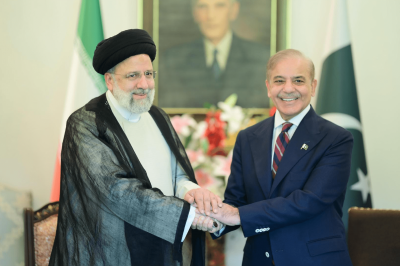From April 22 to 24, 2024, the President of the Islamic Republic of Iran, Dr. Seyed Ebrahim Raisi, visited Pakistan at the invitation of Prime Minister Muhammad Shehbaz Sharif. Accompanied by a high-level delegation, including Foreign Minister Amir Abdollahian, President Raisi engaged in extensive talks with Prime Minister Sharif. They reviewed the entire spectrum of Pakistan-Iran relations, discussed regional and global issues, and signed several MoUs and agreements.
Both leaders emphasized enhancing mutual interactions through regular high-level visits to strengthen fraternal ties. They highlighted the historical, cultural, religious, and civilizational bonds between the neighboring Muslim countries and committed to promoting academic, cultural, and tourism activities. They also emphasized the importance of religious tourism to historic sites in both countries.
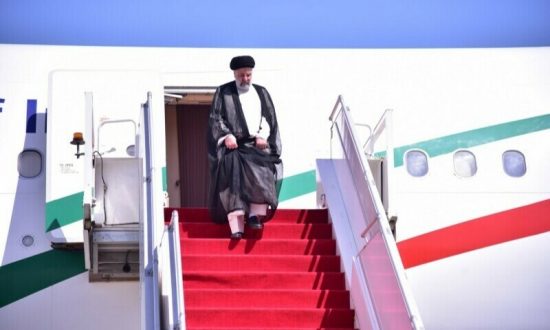
Acknowledging the Pakistan-Iran border as a “border of peace and friendship,” the two sides stressed regular cooperation between political, military, and security officials to combat terrorism, narcotics smuggling, human trafficking, money laundering, and other threats.
They agreed to transform the border into a “border of prosperity” through joint economic projects, including establishing joint border markets and economic free zones. Additionally, both sides underscored the importance of energy cooperation, including electricity trade, power transmission lines, and the IP Gas Pipeline Project. They set a target to boost bilateral trade to USD 10 billion over the next five years.
To further strengthen economic ties, they agreed to finalize the Free Trade Agreement (FTA) and hold sessions of Annual Bilateral Political Consultations (BPC), the Joint Business Trade Committee (JBTC), and the Joint Economic Commission (JEC) soon. They also agreed to facilitate regular exchanges of economic and technical experts and delegations from Chambers of Commerce. The declaration of Reemdan as an international border crossing point under TIR and the opening of remaining border sustenance markets were also agreed upon.
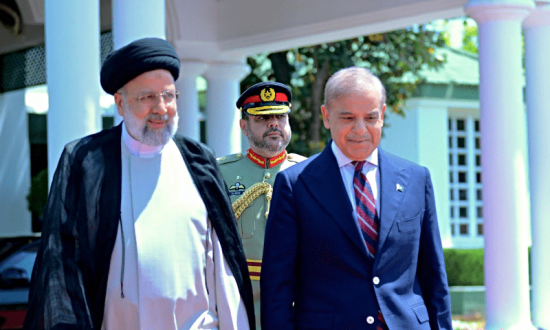
The two sides agreed on fully operationalizing barter trade mechanisms to facilitate economic and commercial activity, contributing to the improvement of the financial situation of residents and enhancing border security. They stressed the importance of harnessing their geographic locations for regional connectivity and agreed to operationalize the TIR Convention to promote efficient trade.
Both countries, as members of the Belt and Road Initiative (BRI) and Economic Cooperation Organization (ECO), resolved to enhance cooperation in connectivity, infrastructure development, and energy sectors, particularly between the sister ports of Gwadar and Chahbahar.
Both leaders condemned terrorism and recognized it as a threat to regional peace and development. They agreed to collaborate in combating terrorism and improving border security through economic opportunities. They stressed the peaceful settlement of disputes and the importance of dialogue and diplomacy, particularly concerning the Kashmir issue, emphasizing resolution based on the people’s will and international law.
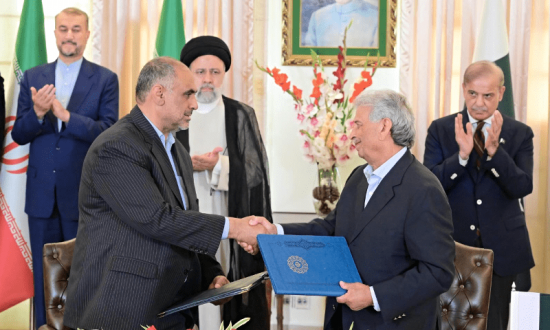
The leaders condemned ongoing Israeli aggression against Palestinians and called for an immediate ceasefire and humanitarian access to Gaza. They reiterated support for a just solution to the Palestinian issue. Both countries expressed satisfaction with cooperating within the Shanghai Cooperation Organization (SCO) and emphasized resuming the SCO-Afghanistan Contact Group’s activities.
Highlighting regional cooperation, they acknowledged the potential of the ECO region for economic development and called for active collaboration between regional countries. They reaffirmed their commitment to Afghanistan’s development as a peaceful, sovereign state and expressed willingness to enhance counter-terrorism cooperation.
Also Read: Pakistan mourns Death of Iranian President Raisi
President Raisi also met with President Asif Ali Zardari, Chairman of the Senate Yusuf Raza Gilani, and Speaker of the National Assembly Sardar Ayaz Sadiq, discussing increased parliamentary interaction. Both sides agreed on prisoner release and extradition measures based on existing treaties. They condemned the attack on the Iranian Embassy in Damascus, calling it a violation of international law, and urged the UN Security Council to address Israeli actions in the region.
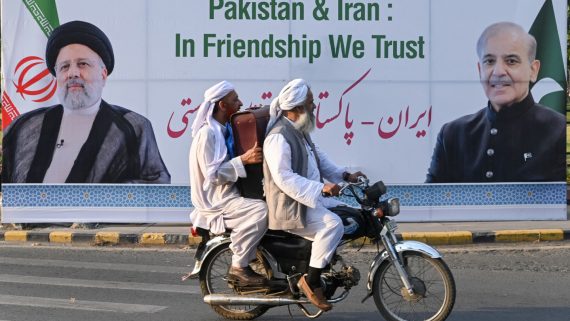
Condemning rising incidents of Islamophobia and desecration of religious symbols, they welcomed the UN General Assembly’s resolution on combating Islamophobia and called for the appointment of a UN Special Envoy. They emphasized respect for diverse social, legal, and governance systems and opposed interference in internal affairs, advocating for constructive international dialogue on human rights.
The leaders welcomed cooperation in multilateral forums, including the UN, ECO, SCO, and OIC, and agreed to start negotiations on free trade in ECO. President Raisi visited Lahore and Karachi, paying homage to Allama Muhammad Iqbal and Quaid-e-Azam and addressing business communities to encourage closer contacts within the Joint Business Council framework.
President Raisi expressed appreciation for Pakistan’s hospitality and invited Pakistani leaders to visit Iran. The visit reaffirmed the commitment to strengthening Pakistan-Iran relations across multiple dimensions.

